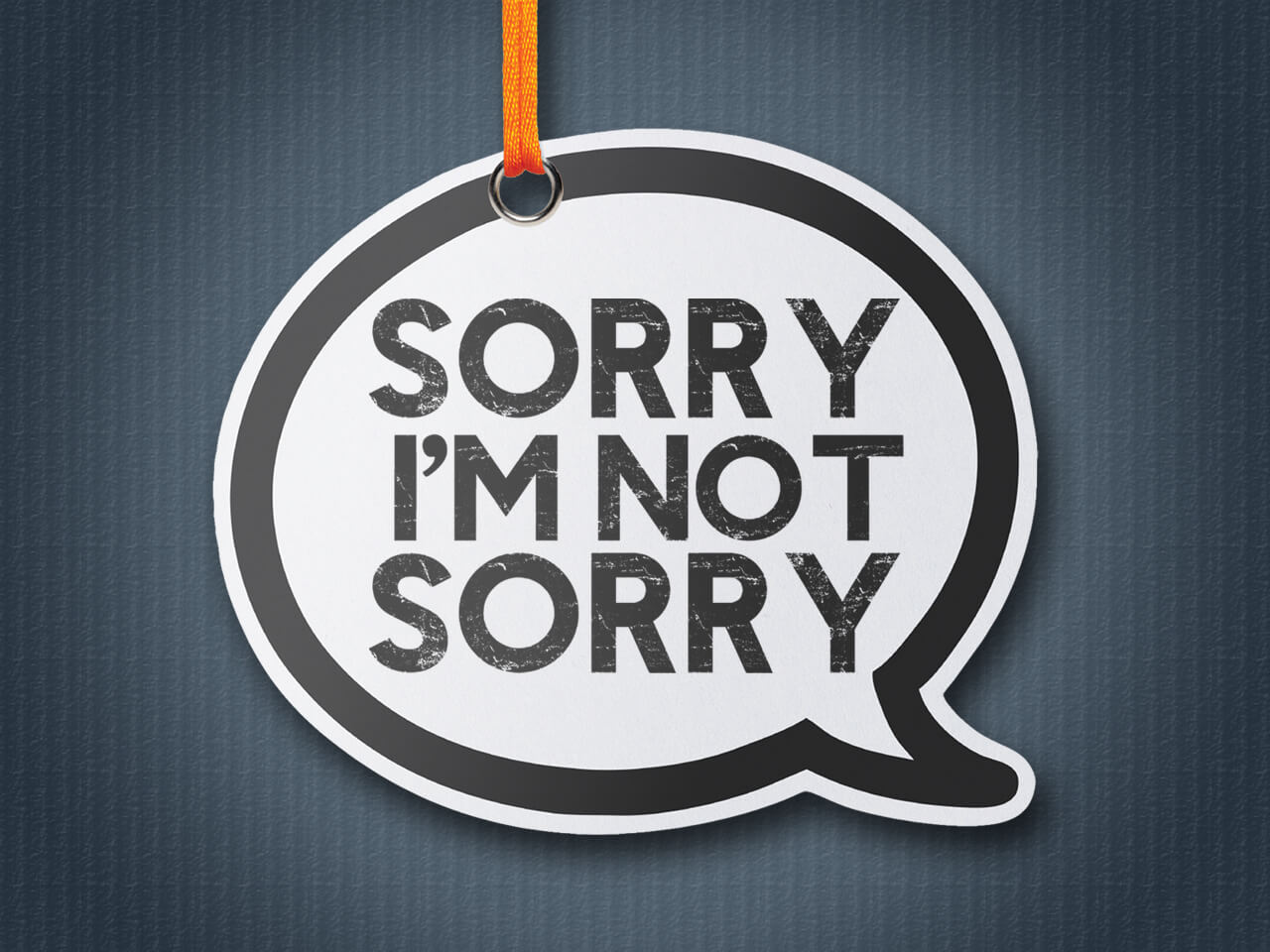I wanted to post a follow up to the blog post I published a couple of weeks ago called How Women Undermine Themselves with Words. (https://beckiemanley.wordpress.com/2015/06/09/how-women-undermine-themselves-with-words-some-simple-needed-wisdom-from-tara-mohr/)
The post was about the world we find ourselves living in where women in particular seem to do nothing but apologize for the most inane things. As a part of the Fierce culture, our tribe knows that when you need to apologize, be the first to do so—genuinely and lovingly. But when you find yourself apologizing for no reason at all, male or female, just stop. It’s not okay. It keeps us from accomplishing our mission as a company and as individuals which is to do mighty things with excellence that effect change in our world. You can’t apologize your way to impact.
I came across an article today in the New York Times called “When an Apology is Anything But,” and it got my attention. It says a lot of the same things I discussed in my previous blog—but then it took it a necessary step further.
This is her theory:
We haven’t addressed the deeper meaning of these “sorrys.” To me, they sound like tiny acts of revolt, expressions of frustration or anger at having to ask for what should be automatic. They are employed when a situation is so clearly not our fault that we think the apology will serve as a prompt for the person who should be apologizing.
It’s a Trojan horse for genuine annoyance, a tactic left over from centuries of having to couch basic demands in palatable packages in order to get what we want. All that exhausting maneuvering is the etiquette equivalent of a vestigial tail.
When a woman opens her window at 3 a.m. on a weeknight and shouts to her neighbor, “I’m sorry, but can you turn the music down?” the “sorry” is not an attempt at unobtrusiveness. It’s not even good manners. It’s a poor translation for a string of expletives.
These sorrys are actually assertive. Unfortunately, for both addresser and addressee alike, the “assertive apology” is too indirect, obscuring the point. It comes off as passive-aggressive — the easiest of the aggressions to dismiss.
And this was her solution for what to say instead of that empty and useless apology:
It’s not what we’re saying that’s the problem, it’s what we’re not saying. The sorrys are taking up airtime that should be used for making logical, declarative statements, expressing opinions and relaying accurate impressions of what we want.
We are not sorry to ask for an email that should have been sent to us weeks ago, or to expect to receive the item we paid for, or to be bumped into on the subway. Yes, we should take the shampoo commercial’s advice and weed out the word when it’s superfluous. But it’s just as important to articulate exactly what we mean in its place.
Julia Child, a consummate charmer, said it best: “Never apologize.” Probably because she never asked anyone to eat dirt.
I love it. Let’s be intentional in our daily conversations. Let’s use smart, thoughtful, declarative words because these are the mighty words and the mighty ideas that can effect change in our world.
The article contains a link to a funny Amy Schumer sketch. The author prefaces it this way:
Here’s the paradox: Every day, we see more unapologetically self-assured female role models, yet women’s extreme prostration seems only to have increased. A recent “Inside Amy Schumer” sketch wonderfully skewered our propensity to apologize: One by one, various accomplished women on a panel apologize, first for trivial things like being allergic to caffeine, or for talking over one another, but finally for having the gall to exist in the first place. The discrepancy between what those women offer the world and how they conduct themselves in it elevates the sketch from amusing to disturbing.
Read the entire article here: http://www.nytimes.com/2015/06/23/opinion/when-an-apology-is-anything-but.html?smid=fb-nytimes&smtyp=cur&_r=0





